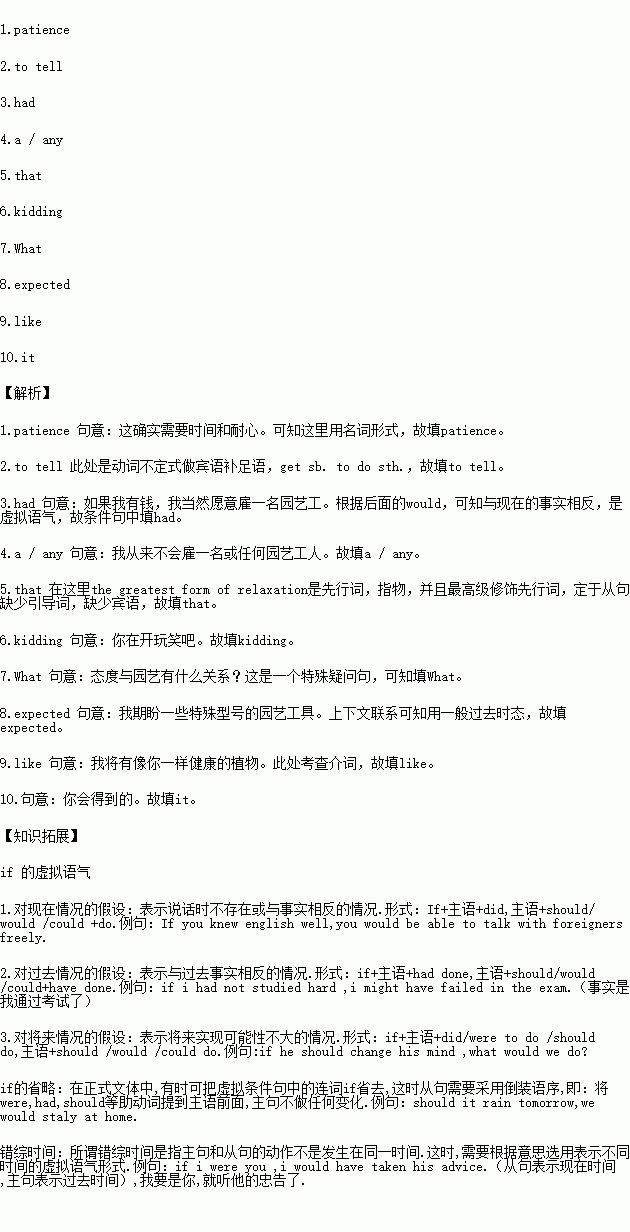题目内容
阅读下面材料,在空白处填入适当的内容(仅限一词)或括号内单词的正确形式(不多于3个单词)
Tom: I have got to admit you have a beautiful backyard, Jane. How do you do it?
Jane: Well, it does take time and __1.__ (patient). But I also have a few secrets.
Tom: OK, OK. What do I have to do to get you__2.__ (tell) me your secrets?
You know if I __3._____(have) the money, surely I would hire a gardener.
Jane: No, you need not do that. I’d never hire __4.___ gardener. Working in the yard is the greatest form of relaxation _5.___ I know of!
Tom: You are 6. (kid) , right? I would never have planted so many trees if I had known how much work they’d require.
Jane: You see, that is your problem. Right there. Your attitude is all wrong.
Tom: My attitude is wrong? ___7.___ does attitude have to do with gardening?
Jane: You’ve got to love working in the backyard—that’s my secret!
Tom: What kind of secret is that? I __8.___ (expect) some special types of gardening tool.
Jane: No, any tool will do the job. It’s all about the mind.
Tom: So if I had a better feeling about my work in the garden, everything would be wonderful. I’d have healthy plants __9.____ you.
Jane: Yes, that’s it. You’ve got _10.___.

